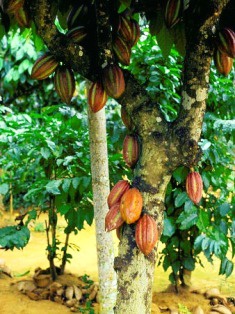
Despite Ghana’s unparalleled cocoa record in the 2010/11 season, thanks to good weather and government incentives, the cocoa industry has gone through some turbulent and unpleasant challenges over the last three seasons.
After the boom output of the 2010/11 season when purchases reached the record high of 1 million tonnes, and the international market offered the country the most pleasing averaged-price ever at US$3,300 per tonne, the industry has suffered a reversal of fortunes.
Licenced Buying Companies (LBCs) -- which purchase cocoa from farmers, prepare and deliver to ports -- have faced more than their fair share of the price setbacks.
“The international market price of cocoa took a declining turn, resulting in earnings from the sale of our cocoa nose-diving to really unanticipated depths,” the President of the Licenced Cocoa Buyers Association of Ghana (LICOBAG), Kojo Atta-Krah, told the Business and Financial Times in an interview.
He explained that LBCs have had to operate on the same buyer’s margin of GH¢342 per tonne for the last three seasons from 2010/11 to 2012/13, adding that this without doubt has created the most uncompromising business condition for LBCs in the country.
“LBCs had to operate under tight shoe-string budgets under very difficult conditions, consequently with generally very unimpressive financial performances over the period,” said Atta-Krah who heads the 32-member association.
Worse is that during the opening of the 2013/14 season, Cocobod urged LBCs to live with the same buyer’s margin for another season -- the fourth year in succession -- a situation that LBCs with great difficulty have again consented to work with, for the time being.
Atta-Krah said it has therefore become imperative for the regulator to manage industry concerns, so as not to derail any aspect of the chain of activities that support the industry and, most importantly, to sustain farmer interest and performance with attractive producer prices even during the period of declining earnings.
Sacrifice versus operating cost
As a major stakeholder of the industry, Atta-Krah said, LBCs recognise the cocoa farmer as the most important player in the activity chain of cocoa production and export in the country. “The survival of our individual companies undoubtedly depends on the survival and continued cultivation of the crop by the farmer. As such, we have found it prudent to continue to sacrifice in the larger interest of the industry and the country.”
Atta-Krah may sound patriotic but big firms are struggling to cope with the sacrificial lamb. PBC Limited, the largest buyer of cocoa beans commanding between 35-37% of purchases, has received the greatest hit from the price setback.
The company has taken a correspondingly large chunk of the bitterness and fallouts associated with it. The burden of accommodating the relatively large fixed cost (human and physical) tied to the operational infrastructure, as well as other costs considered statutory in the industry, has become a heavy cost item to the firm.
Operating during a period of reduced volumes but with increasing costs and stagnant margins creates an added dimension to the burden. Such an environment has invariably put immense strain on the finances of the company and required it to develop very innovative means of executing the necessary activities without overrunning the margins.
Regulatory effectiveness
Most critical to the success of LBCs in managing and surviving under the current malaise of the industry is the effectiveness of the corresponding services provided by the regulator and its agencies: Quality Control Company (QCC) and Cocoa Marketing Company (CMC) -- their performances are major determinants of the well-being or otherwise of LBCs.
“There should be timely and credible quality checks that have to be carried out up-country and at Take-Over-Centres (TOCs). A quick offloading of vehicles on arrival at the TOCs is a most crucial activity in the chain. This activity has been the Achilles-heel of the chain. It will definitely be required of the CMC, responsible for this activity, to get better organised to better complement the efforts of LBCs,” said Atta-Krah.
According to him, processing of documents at the Take-Over-Centres needs to be quickened up to hasten the entire take-over process -- and Cocobod would do well to effect speedy payment for cocoa delivered.
“Holding invoices unpaid for a long time aggravates the pain LBCs encounter and only deepens their woes. While delayed payment automatically reduces the turn-around element in the chain, it compels LBCs to borrow from the market at high commercial rates to continue purchasing farmers’ cocoa. This situation is highly intolerable within the current atmosphere pertaining in the industry,” he stated.
He said that a positive response from Cocobod will no doubt influence the turnaround factor positively, and translate into worthy gains for LBCs.